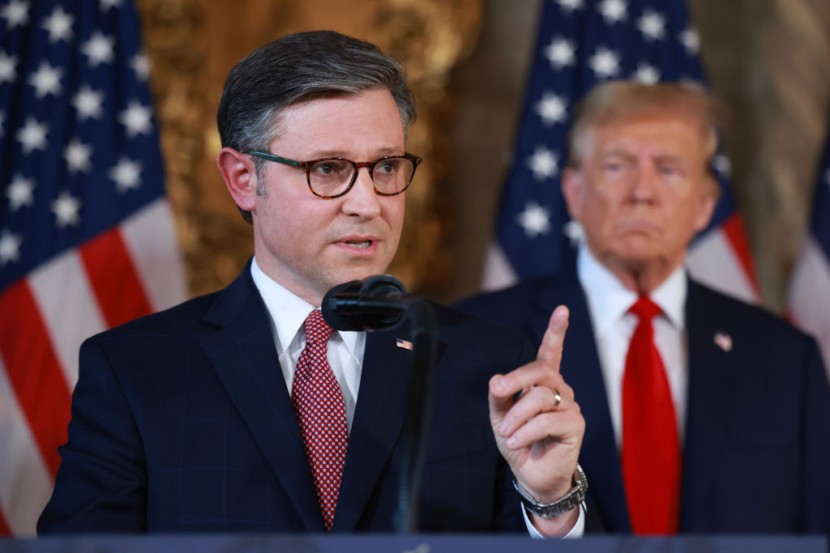
Former President Donald Trump and House Speaker Mike Johnson, R-La., has presented legislation aiming to prevent noncitizens from voting in federal elections.
Voting in federal elections, however, is already illegal for noncitizens in the United States.
Johnson outlined a forthcoming bill from House Republicans that would introduce new citizenship documentation requirements for voter registration.
Experts say this could make it harder for many eligible voters, such as naturalized citizens and young voters, to vote.
"We cannot wait for widespread fraud to occur —especially when the threat of fraud is growing with every single illegal immigrant that crosses that [southern U.S.] border," Johnson said at a press conference at Donald Trump's Mar-a-Lago resort.
The belief that immigrants are affecting American elections has been around in U.S. politics for over a century.
Both Trump and Johnson have promoted the baseless claim that the Biden administration is letting migrants cross the southern border in order to vote.
"We believe one of the reasons for this open border is because they want to turn these people into voters," Johnson suggested.
Since 2020 nine states have passed new laws to identify and remove non-citizens from their voter rolls.
Election officials verify citizenship differently across states.
Federal law requires voters to provide a unique ID number, usually a driver's license or Social Security number, allowing officials to work with those agencies to verify citizenship status, said NPR.
A recent study in Arizona found that less than 1% of noncitizens try to register to vote, most of which are believed to be errors.
Complicating things, some local jurisdictions permit noncitizens to vote in local elections, such as San Francisco, which allows noncitizen parents and guardians to vote in school board elections.
Several cities in Maryland and Vermont also enable noncitizens to vote in municipal elections.
Ron Hayduk, an expert on noncitizen voting at San Francisco State University, told NPR that even in places where noncitizens can legally vote, they normally don't.
Most of the individuals Hayduk interviewed about their experience don't want to risk their status in the U.S. just to cast a single vote.
© 2026 HNGN, All rights reserved. Do not reproduce without permission.









